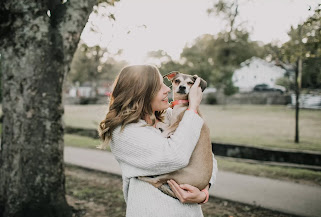Ever met a vet's clinic with your heart on fire, only to remember that you forgot very important information about your pet? These are indeed nightmares in the books of many pet owners. What if you would turn panic into preparation? Let's look at how you can make your next trip to the vet easy and smooth for you both.
Take a little bit of time before scurrying off to the Oxford Veterinary Hospital to gather some of your pet's medical records. That little step will be invaluable in saving you much time while the vet is better able to care for your dear pet. Maintain a folder in which you start recording vaccination history, previous illnesses, and any current drugs; when changing vets, do not hesitate to call your previous clinic to forward these.
Do not forget to write down any recent changes in your pet's behavior or eating habits. These are some of the little details that may seem unimportant but could be helpful in the diagnostic procedure. If your pet has eaten something suspicious or even been in contact with some toxic substance, bring or take its packaging and sample if possible. The more information that you provide, the better the vet will be able to help your pet.
Pack an Emergency Kit
Pack a little emergency supply sack of essentials for the pet. This really comes in handy if you're going to trot off to some emergency animal hospital in Oxford. Leave behind his most prized comfort possession, but take along a spare leash and collar with ID tags, a little extra sheet or towel beside any medications your pet currently takes, and a bottle of water coupled with a collapsible bowl.
Having these items readily available will reduce stress for your pet as well as you. Be sure this bag is located near your animal carrier or the door so that when a quick trip occurs, it's easily accessible to grab and go. You never know if it will be that routine visit or one of those emergencies.
Know Your Pet's Vital Signs
Familiarize yourself with your pet's normal vital signs. This knowledge can help you spot problems early and provide valuable information to the vet. Learn how to check your pet's heart rate, breathing rate, body temperature, and gum color. Practice these checks when your pet is calm and healthy.
By knowing what's normal for your furry friend, you'll be able to spot changes quickly. This information can be invaluable when describing symptoms to a vet. It's like giving them a head start on diagnosing your pet's condition.
Have Transportation Ready
Make sure you have a safe way to transport your pet to the Oxford Animal Hospital. For cats and small dogs, invest in a sturdy carrier. Get your pet used to the carrier at home by leaving it out with comfy bedding inside. This can make future trips less scary for your pet.
For larger dogs, practice getting them in and out of the car calmly. Use treats and praise to make it a positive experience. If your pet gets anxious in the car, ask your vet about safe calming techniques you can use for travel. The goal is to make the journey to the vet as stress-free as possible for both you and your pet.
Research Local Vets
Don't wait for an emergency to find vets in Oxford. Do your homework now. Look up local clinics, their hours, and services. Save the contact information for a few clinics, including a 24-hour emergency vet. Program these numbers into your phone for quick access.
If possible, schedule a meet-and-greet visit with a local vet. This can help your pet feel more comfortable with the clinic environment and staff. It's also a chance for you to ask questions and get familiar with the facility. Building a relationship with a vet before an emergency can make future visits much smoother.
Final Thoughts
Being prepared for vet visits can turn a potentially stressful situation into a manageable one. By gathering medical records, packing an emergency kit, knowing vital signs, ensuring safe transportation, and researching local vets, you're setting yourself and your pet up for success.
These steps might seem small, but they can make a big difference in your pet's health outcomes. Take action now, and face future vet visits with confidence, knowing you're ready for whatever comes your way. Your pet depends on you, and with these preparations, you'll be their best advocate in any medical situation.



Comments
Post a Comment